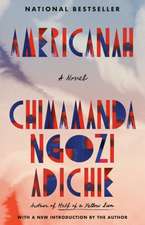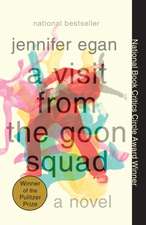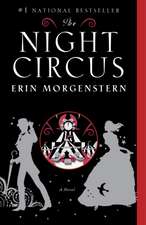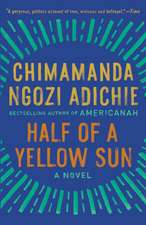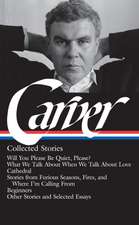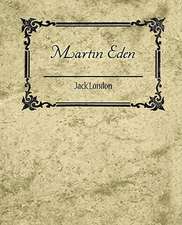A Recipe for Bees
Autor Gail Anderson-Dargatzen Limba Engleză Paperback – 31 mar 2001
Vezi toate premiile Carte premiată
Scotiabank Giller Prize (1998)
Raised by her silent but companionable father and a mother who kept bees, headstrong Augusta marries shy, deferential Karl, twelve years her senior, and goes to live with him on his father's remote farm. Terrified that she will literally die from loneliness and isolation, she finds work in town, and for a short time, fulfillment with another man in a romance that will reverberate throughout her life. Not until many years later does she find her salvation in beekeeping, the practice she first learned from her mother. It is beekeeping that reconnects her to the world and at long last brings fire to her steadfast marriage.
Preț: 94.13 lei
Nou
Puncte Express: 141
Preț estimativ în valută:
18.02€ • 19.45$ • 15.11£
18.02€ • 19.45$ • 15.11£
Carte disponibilă
Livrare economică 29 martie-12 aprilie
Preluare comenzi: 021 569.72.76
Specificații
ISBN-13: 9780385720489
ISBN-10: 0385720483
Pagini: 320
Ilustrații: 11 HALFTONES
Dimensiuni: 131 x 203 x 17 mm
Greutate: 0.29 kg
Editura: Anchor Books
ISBN-10: 0385720483
Pagini: 320
Ilustrații: 11 HALFTONES
Dimensiuni: 131 x 203 x 17 mm
Greutate: 0.29 kg
Editura: Anchor Books
Notă biografică
Gail Anderson-Dargatz, whose fictional style has been coined as “Pacific Northwest Gothic” by the Boston Globe, has been compared by critics to John Steinbeck, William Faulkner, Flannery O’Connor, Margaret Atwood, Alice Munro, Salman Rushdie and Gabriel García Márquez. Her novels have been published worldwide in English and in many other languages. A Recipe for Bees and The Cure for Death by Lighting were international bestsellers, published worldwide in English and in many other languages, and were both short-listed for the prestigious Giller Prize in Canada. The Cure for Death by Lightning won the UK’s Betty Trask Prize among other awards. A Rhinestone Button was a national bestseller in Canada and her first book, The Miss Hereford Stories, was short-listed for the Leacock Award for humour.
Her mother, who also wrote, instilled literary confidence in Gail, so that by the age of eighteen, Gail knew she wanted to be the next Margaret Laurence, writing about Canadian women in rural settings. "Laurence's interest in them made me feel that their and my experience was important."
In her early twenties, the future author got a job as a reporter for her hometown paper, the Salmon Arm Observer, but continued to enter her fiction in competitions, and she started to win. One submission caught the attention of the writer Jack Hodgins, who encouraged her to enroll in his course at the University of Victoria. She graduated from there with a B.A. in creative writing.
Gail's literary career began to take off when she won first prize in the CBC Literary Competition for a story taken from an early draft of her first novel, The Cure for Death by Lightning. When a Toronto literary agent took her on she already had a short story collection ready to go: The Miss Hereford Stories. Set in the 1960s in the fictional town of Likely, Alberta, ("what you call a half-horse town") the book, with its cast of colourful eccentrics, was published in 1994 and nominated for the Stephen Leacock Medal for Humour. The Cure for Death by Lightning, her first novel, followed two years later.
Saturday Night magazine has said that the inclination to write about rural characters sets Anderson-Dargatz apart from many writers of her generation, who tend towards urban fiction. What does she find so fascinating about small-town and country life? "Once you step off the concrete, life stops being abstract and starts being very real, very immediate, very fundamental and very sensual." On this topic, the Financial Post said, “Anyone who thinks rural characters in Canadian fiction are dull and bland should pick up one of Gail Anderson-Dargatz’s novels. … The only certainty in her world view is that anything can, and very often does, happen.”
Although she is influenced by Margaret Laurence, Alice Munro, her mentor Jack Hodgins and favourite writers such as Toni Morrison, she says her inspiration comes “from the people and landscapes around me more than from other books." Her style has been called "Margaret Laurence meets Gabriel García Márquez" because her writing tends towards magic realism, but she says the ghosts and premonitions in her writing arise from family stories of the Thompson-Shuswap region, which she carefully transcribed. "My father passed on the rich stories and legends about the region I grew up in, which he heard from the interior Salish natives he worked with. And my mother told me tales of her own premonitions, and of ghosts, eccentrics and dark deeds that haunted the area."
Gail Anderson-Dargatz has just recently returned home to the Thompson-Shuswap region found in so much of her writing, and she currently teaches advanced novel and advanced fiction in the Creative Writing MFA program at the University of British Columbia.
From the Hardcover edition.
Her mother, who also wrote, instilled literary confidence in Gail, so that by the age of eighteen, Gail knew she wanted to be the next Margaret Laurence, writing about Canadian women in rural settings. "Laurence's interest in them made me feel that their and my experience was important."
In her early twenties, the future author got a job as a reporter for her hometown paper, the Salmon Arm Observer, but continued to enter her fiction in competitions, and she started to win. One submission caught the attention of the writer Jack Hodgins, who encouraged her to enroll in his course at the University of Victoria. She graduated from there with a B.A. in creative writing.
Gail's literary career began to take off when she won first prize in the CBC Literary Competition for a story taken from an early draft of her first novel, The Cure for Death by Lightning. When a Toronto literary agent took her on she already had a short story collection ready to go: The Miss Hereford Stories. Set in the 1960s in the fictional town of Likely, Alberta, ("what you call a half-horse town") the book, with its cast of colourful eccentrics, was published in 1994 and nominated for the Stephen Leacock Medal for Humour. The Cure for Death by Lightning, her first novel, followed two years later.
Saturday Night magazine has said that the inclination to write about rural characters sets Anderson-Dargatz apart from many writers of her generation, who tend towards urban fiction. What does she find so fascinating about small-town and country life? "Once you step off the concrete, life stops being abstract and starts being very real, very immediate, very fundamental and very sensual." On this topic, the Financial Post said, “Anyone who thinks rural characters in Canadian fiction are dull and bland should pick up one of Gail Anderson-Dargatz’s novels. … The only certainty in her world view is that anything can, and very often does, happen.”
Although she is influenced by Margaret Laurence, Alice Munro, her mentor Jack Hodgins and favourite writers such as Toni Morrison, she says her inspiration comes “from the people and landscapes around me more than from other books." Her style has been called "Margaret Laurence meets Gabriel García Márquez" because her writing tends towards magic realism, but she says the ghosts and premonitions in her writing arise from family stories of the Thompson-Shuswap region, which she carefully transcribed. "My father passed on the rich stories and legends about the region I grew up in, which he heard from the interior Salish natives he worked with. And my mother told me tales of her own premonitions, and of ghosts, eccentrics and dark deeds that haunted the area."
Gail Anderson-Dargatz has just recently returned home to the Thompson-Shuswap region found in so much of her writing, and she currently teaches advanced novel and advanced fiction in the Creative Writing MFA program at the University of British Columbia.
From the Hardcover edition.
Extras
From Chapter One
"Have I told you the drone's penis snaps off during intercourse with the queen bee?" asked Augusta.
"Yes," said Rose. "Many times."
Before Augusta dragged her luggage upstairs to the apartment, before she checked on the welfare of her elderly husband, Karl, even before she hugged and greeted her seven kittens, she had made her way, with the aid of a cane, across the uneven ground to inspect the hive of bees she kept in Rose's garden.
"They won't mate at all unless they're way up in the sky," said Augusta. "The drones won't take a second look at a queen coming out of a hive. But when she's thirty, a hundred, feet up in the air, then she gets their interest. They'll seek her out, flying this way and that to catch her scent until there's a V of drones -- like the V of geese following a leader in the sky -- chasing along behind her."
"You were going to tell me about Joe," said Rose.
"As soon as the drone mounts and thrusts, he's paralyzed, his genitals snap off, and he falls backward a hundred feet to his death."
"I don't want to hear about it."
In late summer, hives full of ripening honey emitted a particular scent, like the whiff of sweetness Augusta used to catch passing by the candy-apple kiosk at the fall fair, but without the tang of apples to it. She should have been smelling this now, but instead the hive gave off the vinegar-and-almond scent of angry bees. They buzzed loudly, boiling in the air in front of the hive like a pot of simmering toffee. There were far more guard bees than usual, standing at attention at the mouth of the hive.
"Something's been after the bees," said Augusta. She took a step forward to examine them, but several bees flew straight at her, warning her off. "I'll have to look at them later," she said. "When they've settled down."
She turned to the balcony of her apartment, directly above the garden. "Do you think Karl remembers today is our anniversary?"
"He hasn't said anything to me," said Rose. Later that evening, though, Augusta would learn that Rose had hidden Karl's flowers in her fridge. He had walked up and down the roadsides and into the vacant lots, searching for pearly everlastings, sweet tiny yellow flowers with white bracts that bloomed from midsummer right on into winter, and held their shape and color when dried. They were the flowers Karl had picked for Augusta's wedding bouquet forty-eight years before. He had brought the flowers to Rose's apartment in a vase and asked her to hide them in her fridge until later that day.
"You'd think he'd remember, wouldn't you?" said Augusta. "Especially after everything that's happened these past three weeks."
"You'd think."
"You can hear it, you know."
"What?"
"The snapping. If you're listening for it, you can hear a sharp crack when the drone's penis breaks off."
"Oh, God."
Rose followed Augusta as she headed through the sliding glass doors into Rose's apartment to retrieve her luggage. "Can you carry this one upstairs?" she asked Rose. "And this one? I can only manage the one bag with this cane of mine."
Rose took the bags, one in each hand. "But you were going to tell me the story, about seeing Joe again."
"Not now, Rose. I want to see if Joy's phoned with news about Gabe."
"But you promised."
"We'll have plenty of time later."
"You'd go and tell something like that to some strange woman on the train, but you won't tell your best friend."
"I like Esther. I think we'll be seeing a lot more of her. I promised to show her my hive."
"You'll be seeing a lot more of her. I don't care if I ever see her again."
"Well, since neither Esther nor I can drive, you'll have to drive me, so yes, you will be seeing her again."
"Oh, isn't that just great? Now I'm your personal chauffeur."
Augusta turned around at the doorway. "Rose, what's this all about?"
"Just tell the story. About Joe. I thought you never saw him again."
Augusta shook her head and started up the stairs to her apartment. "I'm sure I told you all that already. I can remember showing you the brooch he gave me. Ages and ages ago."
"Yes, the day we met. But you never told me the story. Are you really going to give that brooch to Joy?"
Augusta had met Rose five years before, on the ferry, just after she and Karl had sold the farm. Augusta and Karl were moving to the warmer climate of Vancouver Island. Rose turned the corner into the ferry bathroom and there was Augusta, sitting at the mirrored makeup counter they have on those boats, rummaging through her big purse. Augusta had looked up at Rose in the mirror, smiled, and said, "Do you have a comb? I can't seem to find mine."
Perhaps it was an inappropriate request to make of a stranger, she thought now, rather like asking to borrow someone's toothbrush. Rose said no. "They have them at the newsstand."
"Thanks. I'll get one from there. That's a lovely brooch you're wearing."
"It was my mother's," Rose replied, and Augusta promptly caught her in a web of conversation about the brooch a man named Joe had given her, a brooch Augusta pulled from her purse and showed Rose: a silver setting hemmed a real bee suspended in amber. When Augusta held it up, it cast a little pool of honey light on the floor. "It was the only lasting thing he ever gave me, in the way of presents," she said. "And that was decades after I'd stopped seeing him. I still dream about him, you know." Rose nodded and smiled and moved slowly backward, away, to a toilet stall. Augusta, seeing her discomfort, left before she came out again.
"Have I told you the drone's penis snaps off during intercourse with the queen bee?" asked Augusta.
"Yes," said Rose. "Many times."
Before Augusta dragged her luggage upstairs to the apartment, before she checked on the welfare of her elderly husband, Karl, even before she hugged and greeted her seven kittens, she had made her way, with the aid of a cane, across the uneven ground to inspect the hive of bees she kept in Rose's garden.
"They won't mate at all unless they're way up in the sky," said Augusta. "The drones won't take a second look at a queen coming out of a hive. But when she's thirty, a hundred, feet up in the air, then she gets their interest. They'll seek her out, flying this way and that to catch her scent until there's a V of drones -- like the V of geese following a leader in the sky -- chasing along behind her."
"You were going to tell me about Joe," said Rose.
"As soon as the drone mounts and thrusts, he's paralyzed, his genitals snap off, and he falls backward a hundred feet to his death."
"I don't want to hear about it."
In late summer, hives full of ripening honey emitted a particular scent, like the whiff of sweetness Augusta used to catch passing by the candy-apple kiosk at the fall fair, but without the tang of apples to it. She should have been smelling this now, but instead the hive gave off the vinegar-and-almond scent of angry bees. They buzzed loudly, boiling in the air in front of the hive like a pot of simmering toffee. There were far more guard bees than usual, standing at attention at the mouth of the hive.
"Something's been after the bees," said Augusta. She took a step forward to examine them, but several bees flew straight at her, warning her off. "I'll have to look at them later," she said. "When they've settled down."
She turned to the balcony of her apartment, directly above the garden. "Do you think Karl remembers today is our anniversary?"
"He hasn't said anything to me," said Rose. Later that evening, though, Augusta would learn that Rose had hidden Karl's flowers in her fridge. He had walked up and down the roadsides and into the vacant lots, searching for pearly everlastings, sweet tiny yellow flowers with white bracts that bloomed from midsummer right on into winter, and held their shape and color when dried. They were the flowers Karl had picked for Augusta's wedding bouquet forty-eight years before. He had brought the flowers to Rose's apartment in a vase and asked her to hide them in her fridge until later that day.
"You'd think he'd remember, wouldn't you?" said Augusta. "Especially after everything that's happened these past three weeks."
"You'd think."
"You can hear it, you know."
"What?"
"The snapping. If you're listening for it, you can hear a sharp crack when the drone's penis breaks off."
"Oh, God."
Rose followed Augusta as she headed through the sliding glass doors into Rose's apartment to retrieve her luggage. "Can you carry this one upstairs?" she asked Rose. "And this one? I can only manage the one bag with this cane of mine."
Rose took the bags, one in each hand. "But you were going to tell me the story, about seeing Joe again."
"Not now, Rose. I want to see if Joy's phoned with news about Gabe."
"But you promised."
"We'll have plenty of time later."
"You'd go and tell something like that to some strange woman on the train, but you won't tell your best friend."
"I like Esther. I think we'll be seeing a lot more of her. I promised to show her my hive."
"You'll be seeing a lot more of her. I don't care if I ever see her again."
"Well, since neither Esther nor I can drive, you'll have to drive me, so yes, you will be seeing her again."
"Oh, isn't that just great? Now I'm your personal chauffeur."
Augusta turned around at the doorway. "Rose, what's this all about?"
"Just tell the story. About Joe. I thought you never saw him again."
Augusta shook her head and started up the stairs to her apartment. "I'm sure I told you all that already. I can remember showing you the brooch he gave me. Ages and ages ago."
"Yes, the day we met. But you never told me the story. Are you really going to give that brooch to Joy?"
Augusta had met Rose five years before, on the ferry, just after she and Karl had sold the farm. Augusta and Karl were moving to the warmer climate of Vancouver Island. Rose turned the corner into the ferry bathroom and there was Augusta, sitting at the mirrored makeup counter they have on those boats, rummaging through her big purse. Augusta had looked up at Rose in the mirror, smiled, and said, "Do you have a comb? I can't seem to find mine."
Perhaps it was an inappropriate request to make of a stranger, she thought now, rather like asking to borrow someone's toothbrush. Rose said no. "They have them at the newsstand."
"Thanks. I'll get one from there. That's a lovely brooch you're wearing."
"It was my mother's," Rose replied, and Augusta promptly caught her in a web of conversation about the brooch a man named Joe had given her, a brooch Augusta pulled from her purse and showed Rose: a silver setting hemmed a real bee suspended in amber. When Augusta held it up, it cast a little pool of honey light on the floor. "It was the only lasting thing he ever gave me, in the way of presents," she said. "And that was decades after I'd stopped seeing him. I still dream about him, you know." Rose nodded and smiled and moved slowly backward, away, to a toilet stall. Augusta, seeing her discomfort, left before she came out again.
Recenzii
?A Recipe for Bees reminds us all it?s never too late to fall in love.??Chris Bohjalian, author of Midwives
Descriere
As a teenager, Augusta Olson foresaw that her mother would die in childbirth. She could not predict that her own marriage to a sheep farmer would prove so confining. But when she takes up her mother's craft of bee-keeping that her life--and her marriage--is unexpectedly transformed. Photos.
Premii
- Scotiabank Giller Prize Nominee, 1998

